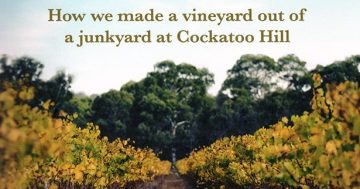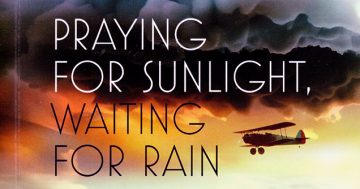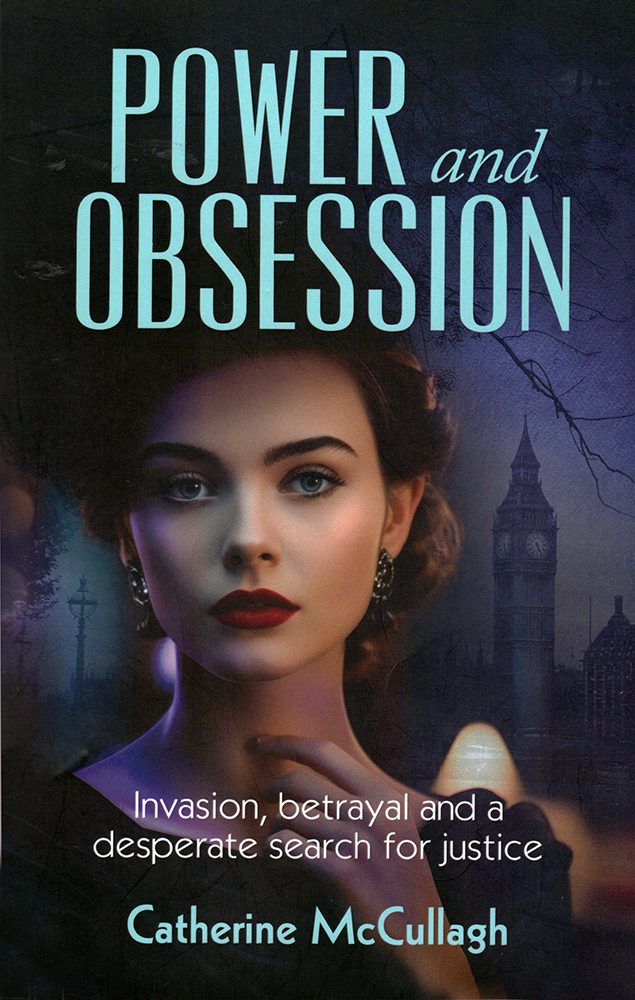
Catherine McCullagh’s historical fiction Power and Obsession asks what a Nazi-occupied Britain might have been like. Images: Supplied.
Catherine McCullagh writes alternative historical fiction in this nail-biting tale, Power and Obsession (Big Sky Publishing, 2024; cover design Think Productions), set in a presumptive occupied Britain from 1940 to the end of the Second World War.
She asks what a Nazi-occupied Britain might be like. Who would be sympathisers? Who would be collaborators, and why and how? Who would resist and how?
Emilia Shaw, the heroine of the story, is recruited into a resistance network and sent to work in the secretariat of the SS headquarters under the commander of operations in Britain, SS General Oskar Voigt.
As the occupation continues, Emilia is tasked with increasingly dangerous drops and deliveries that put her in mortal danger. She is under constant surveillance and nobody can be trusted.
Meanwhile, the erstwhile King, Edward Duke of Windsor, who abdicated to marry his beloved Wallis Simpson, is in high favour with the Nazi regime. He expects to return to the throne with Wallis as Queen – her dearest desire.
Catherine McCullagh writes of human psychology with insight and compassion. She tells complex stories of morality and human nature. There is much to keep us philosophising well after we finish this novel; thankfully, the story is not yet ending.
The author promises us at least two follow-up novels that may satisfy our need for justice – or not, who knows? Well worth the wait, of course.
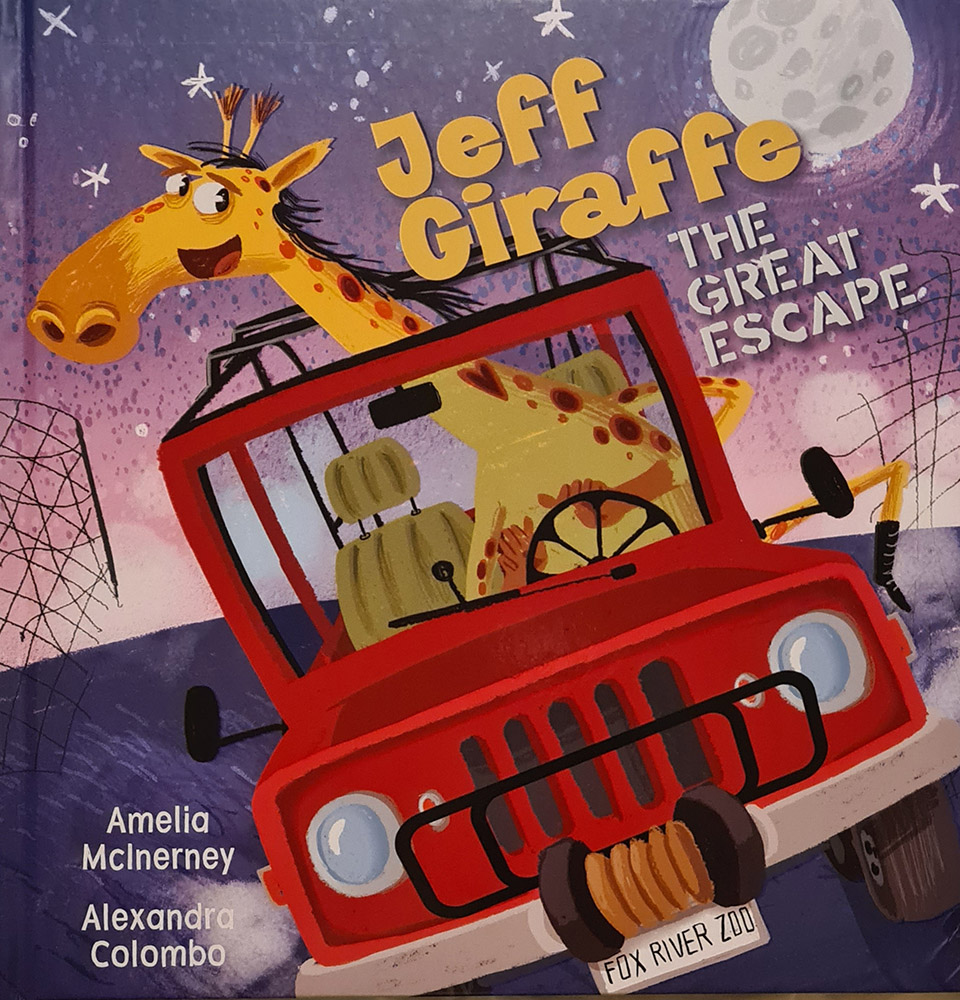
Jeff Giraffe – The Great Escape by Amelia McInerney and Alexandra Colombo combines charm, humour and quirky characters.
The desire for freedom and the positives of risk-taking are well portrayed for young audiences in Amelia McInerney and Alexandra Colombo’s Jeff Giraffe – The Great Escape (Larrikin House, Australia, 2024; design and artwork Mary Anastasiou imaginecreative.com.au).
Amelia McInerney is an ebullient author who creates stories with charm, humour and quirky characters. Alexandra Colombo’s visual story captures the gamut of emotions, the humour of the story and a sense of wild adventure.
The author’s words are bold and exclamatory as Jeff tries to escape from the zoo to the neighbouring park – his dream. His partner in life, Jan the pink giraffe, is long-suffering, a voice of caution and restraint but also resignation – she knows he will continue with his antics because that’s who he is.
While this story is essentially a romp for romp’s sake, it is also a reminder that chasing one’s dreams and being oneself are good things. There will always be people who want to restrain us, but risk-taking is part of pursuing dreams, a trait much needed in the contemporary world.
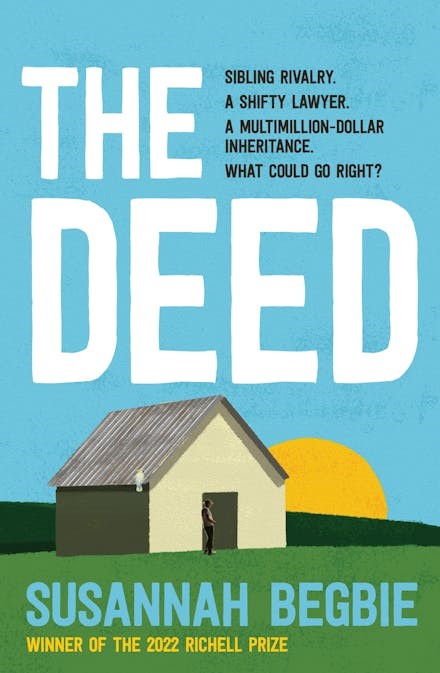
In Susannah Begbie’s book The Deed, the demands of a dying patriarch take the reader between laughter and sadness.
The way different individuals react to difficult situations is also a leading theme in Susannah Begbie’s The Deed (Hachette, Australia, 2024; cover Christabella Designs).
Susannah Begbie, winner of the 2002 Richell Prize, writes with an astute eye for human behaviour but also with compassion and humour in a story about grief and family relationships.
Death can be a tricky subject to handle in literature, but the author has created a story rich in observation of both the risibility of human behaviour and our capacity to rise when circumstances demand.
Knowing he is dying, Tom Edwards, patriarch and farmer at Ellerslie, sets a task in his will to test the mettle of his four children, all of whom have disappointed him somewhat. To inherit the not insubstantial property, they must work together to hand-build a coffin of certain tricky specifications.
Another complication is in the will’s provision that if they do not meet all the conditions the estate will pass to the shonky lawyer, Vince Barton. It’s a hefty motivation to shape up.
This book tosses us between laughter at the sheer ridiculousness of human behaviour and sadness in the face of enormous grief and pain. The strength of blood bonds remains and can be mustered when the circumstances are right. This is a sparkling debut, and happily, there’s more to come.
Barbie Robinson is co-founder and a content creator for Living Arts Canberra, a not-for-profit media outfit supporting arts and community in the Canberra region and books worldwide through its website, podcast interviews and a 24/7 internet radio station at Living Arts Canberra.












